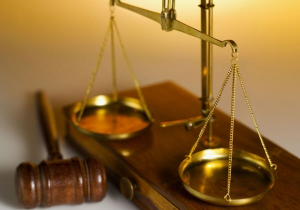Nigeria’s justice system is making a slow recovery from the effects of about fifteen years of military rule, and many problems remain.
The pace of civil and criminal justice reforms across the Country is slow, although important efforts have been made by some States to expand access to justice by establishing alternative dispute resolution and legal assistance centres.
Judicial corruption remains a major concern, and between 2002 and 2005, no fewer than 6 superior court Judges, including 2 Justices of the Court of Appeal were removed from their posts on charges of corruption, while a number of other Judges are under investigation.
While the 1999 Constitution has established a central body responsible for the appointment and discipline of superior court Judges, political office holders continue to wield considerable influence over judicial appointments and removals.
The Nigerian government is growing a culture of disobeying court decisions, even decisions of the Supreme Court and that culture is spreading, carrying with it, grave consequences for the rule of law in a nascent democracy.
Measures taken to curtail excessive arbitrariness in the way Judges grant discretionary orders are succeeding, but also are stifling the independence of Judges to make decisions without fear of being questioned or punished as a consequence of those decisions.
A number of States in Nigeria have introduced Shari’a laws into the legal system, but some punishments prescribed by these laws violate human rights, and there are concerns that Shari’a courts deny defendants’ due process rights.
Nigeria-Attacks on Justice 2005-Publication-2008 (full text, PDF)

